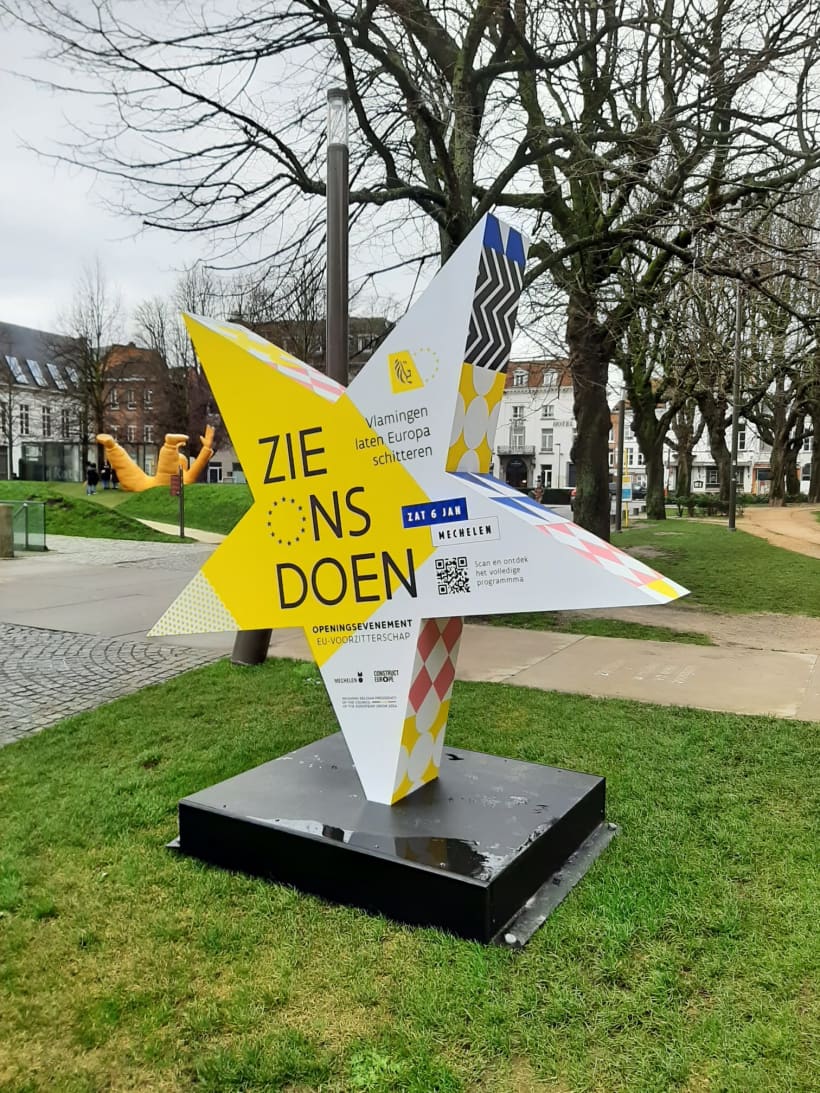Flanders' role in the EU presidency
From 1 January to 30 June 2024, Belgium will hold the presidency of the Council of the European Union. Flanders will take on an important role in this Belgian EU presidency.
EU Presidency = Presidency of the Council of the European Union
The Council of the European Union, together with the European Parliament, is the legislator of the European Union.
The Council is made up of the national government ministers of the 27 European Union member states. Every six months, one of the member states becomes the president of the Council, on a rotating basis. The member state holding the presidency chairs the meetings at the different levels and acts as a neutral broker to reach compromises for decision-making in the Council.
More information on the EU presidency of the Council of the European Union (opens in new window)
Formal role of Flanders
Flanders will play an important role in the Belgian EU presidency, since the division of powers in Belgium between the federal government and the Regions and Communities (in foro interno, in foro externo) also applies at EU level. Flanders co-determines the positions that Belgium takes in the Council for areas for which it has competence, and Flemish ministers can represent Belgium in Council meetings.
Practical agreements on the adoption of positions and the representation in the EU are laid down in a cooperation agreement between the different authorities in Belgium. More information on the cooperation agreement(opens in new window)
During the EU presidency of 2024, Flanders will represent Belgium as president of the Council of the EU for matters regarding Industry, Youth, Culture, Media and Fisheries. Specifically, this means that Flemish ministers and experts will chair Council meetings on those areas (on behalf of all the EU member states). Moreover, they will represent the Council in the other EU institutions and in multilateral contexts during these six months.
Besides the presidency, Flanders will represent Belgium as spokesperson for matters relating to Internal Market, Public Health, Transport, Education, Sport, Fisheries and Agriculture. Finally, Flanders will fulfil its responsibilities and competences in other areas to its full potential by providing expertise, co-determining positions and organising its own meetings and events, among other things.
With the June 2024 European elections on the horizon, the Belgian presidency comes at the end of an EU parliamentary term, which means the first months of 2024 will be dedicated to finalising pending dossiers.
Flanders’ accents in the EU presidency

As president of the Council of the EU, Flanders will act as a catalyst for the EU agenda, placing strong emphasis on innovation, connection and resilience. To that end, we seek to forge consensus among Member States and actively pursue the achievement of EU goals. Moreover, we want to work on specific topics and propagate best practices with Flanders as a frontrunner in stimulating and inspiring European policy.
Flanders’ programme for the EU presidency is reflected by the acronym ‘STAR’:
Smart competitiveness
Twin transition
All together
Reaching out to partners
Flanders in the EU - the EU in Flanders
Apart from the formal role that Flanders will fulfil, the EU presidency provides an excellent opportunity to highlight Flanders even more within the EU as well as to liven up the EU debate in Flemish society. The Government of Flanders considers innovation, connection and resilience to be the mainstays in this context. Flanders’ plans serve as input into the Belgian programme for the EU presidency.
The EU presidency offers plenty of opportunities for Flanders. Firstly, the EU is the key lever of Flanders’ foreign policy. The EU presidency represents an opportunity to increase this leverage and strengthen Flanders’ international reputation.
Also interesting
- The Delegation of Flanders to the European Union advocates the interests of the Government of Flanders within the EU.
- The Liaison agency Flanders-Europe informs the Flemish authorities and civil society about new European policy initiatives and funding opportunities,…